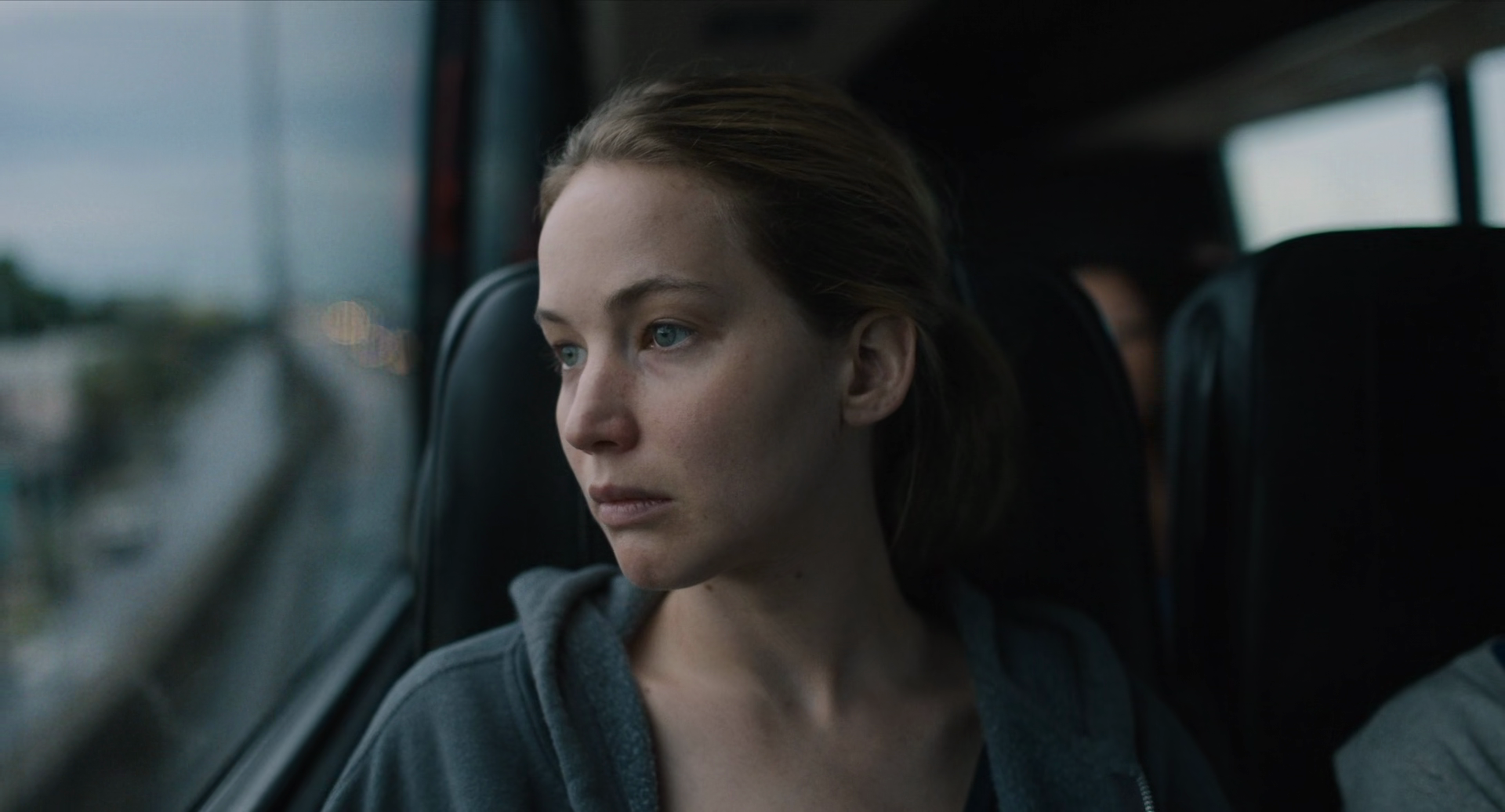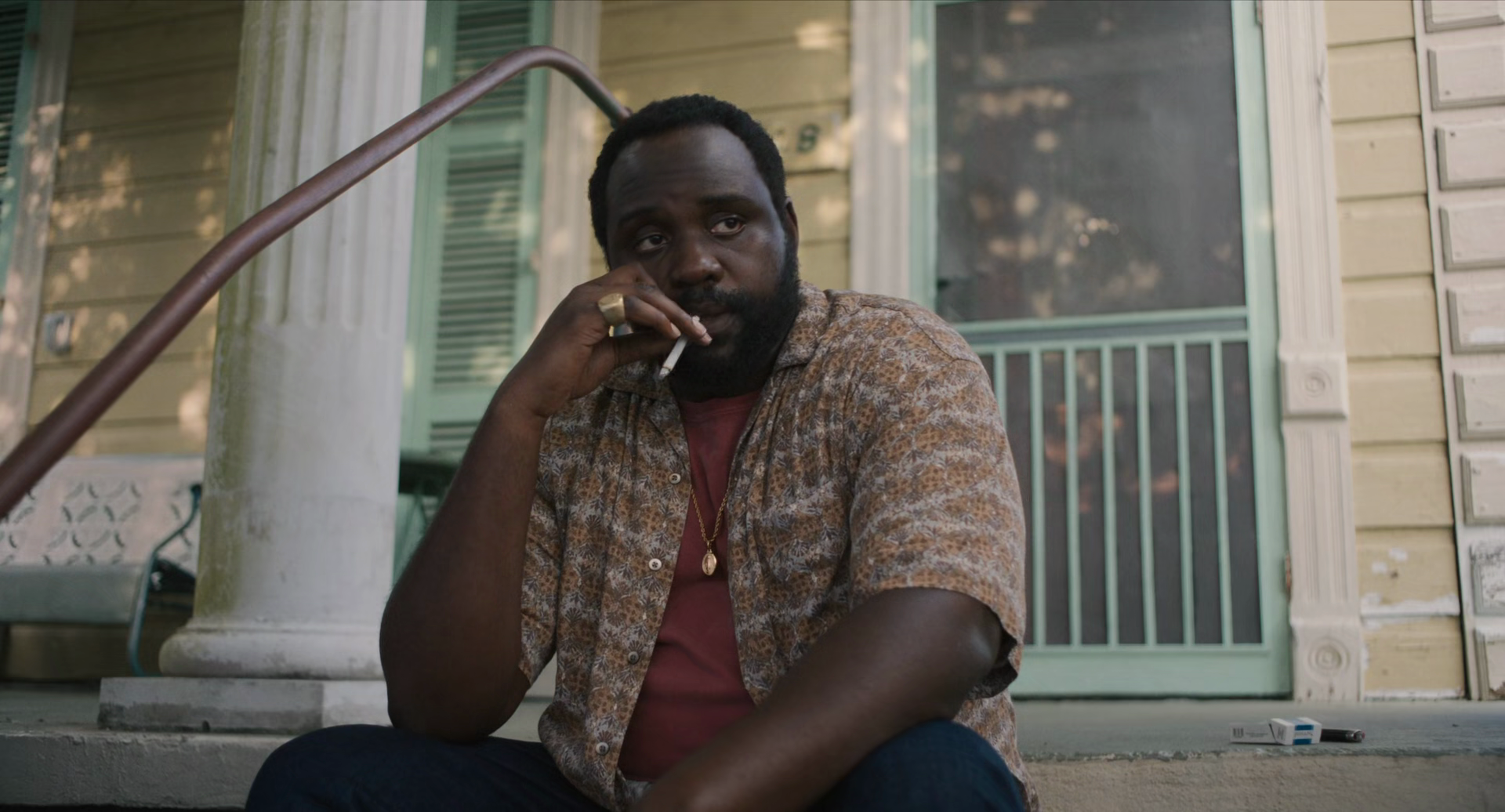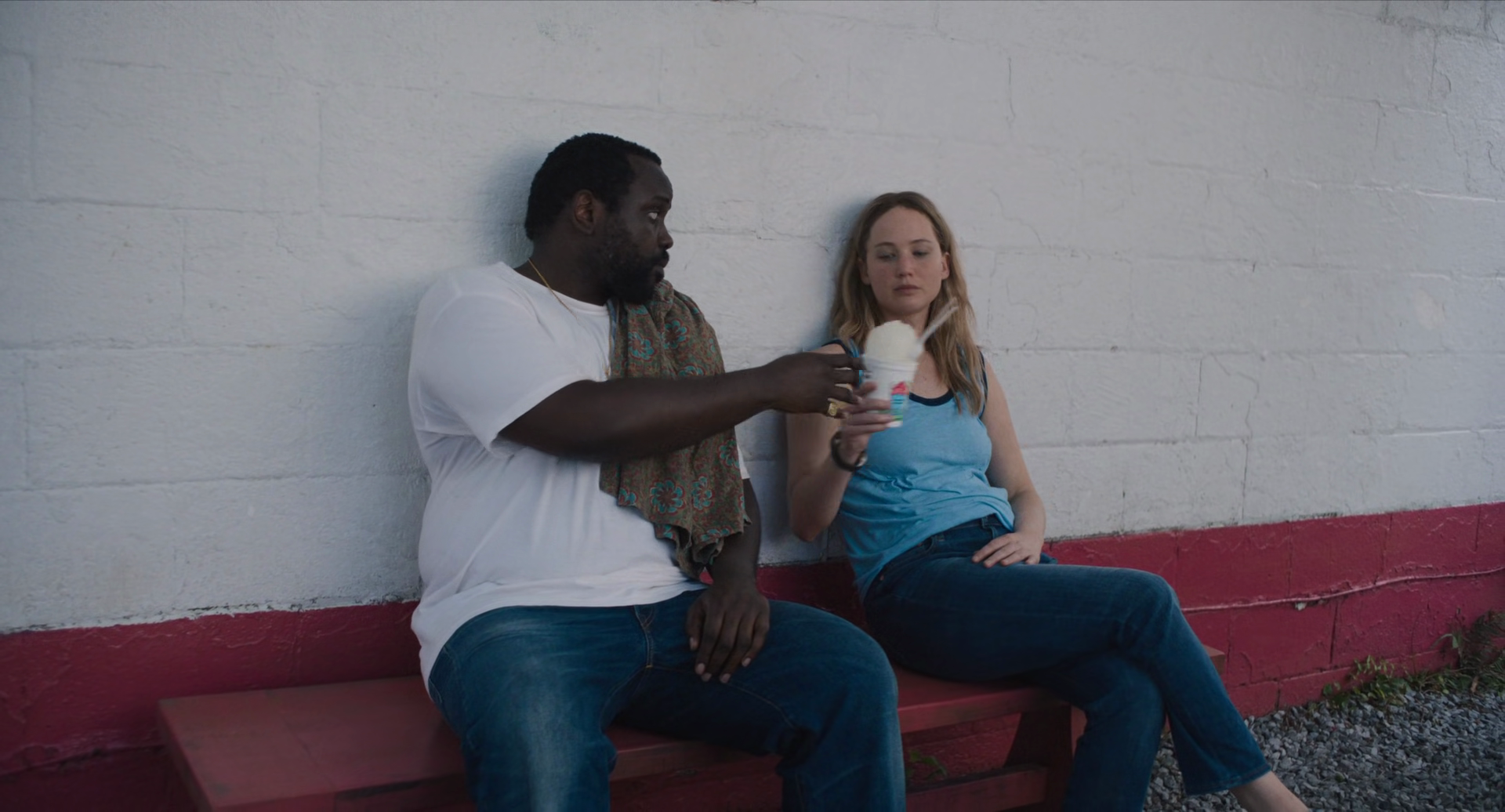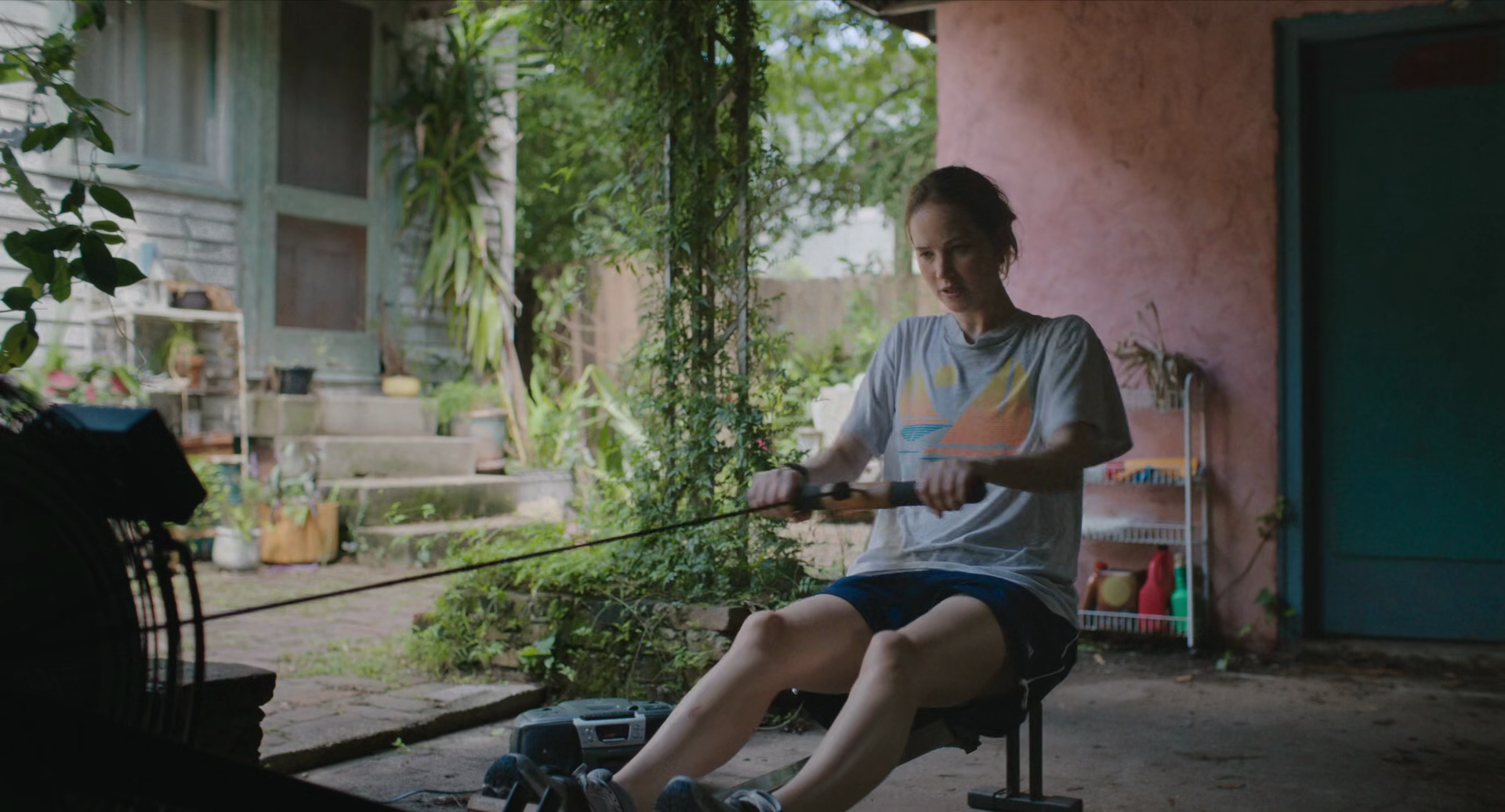Trans Allegories in Film: 'Your Name' (2016)
Our protagonists perform as the opposite gender while still preserving the parts of their personalities that makes themselves who they are.
For those who don’t know, Jennifer Lawrence began her film career through Indie films. Her first role in a film was in the 2008 feature Garden Party. In the same year, she appeared in The Burning Plain with Kim Basinger and Charlize Theron. Her first leading role also came in 2008, in The Poker House. Her follow-up to that came two years later in Winter’s Bone, in which she gave one of her best performances and I would say one could have predicted she would win an Oscar in another two years if they saw it back in 2010. But before that Oscar, she joined the X-Men franchise in 2011 through X-Men: First Class as Raven and then The Hunger Games in 2012 as the protagonist Katniss Everdeen herself! Be it for portraying those widely popular characters, or for her Oscar in 2013 for Silver Linings Playbook, she became the household name she is today within five years of her film debut. And since then, with the exception of mother! in 2017, she’s only appeared in big-budget productions like American Hustle, Hunger Games: Mockingjay Parts 1 & 2, X-Men: Apocalypse, Passengers, Red Sparrow and Don’t Look Up, to name a few. So when the Causeway trailer was released, I got very excited to learn that it’s an independent film! It felt like a possible return to her roots. I watched it the day it became available and let me tell you, it blew me away. It’s been over ten years since The Beaver and I feel like the wait was worth it. It’s also her first appearance in a film distributed by A24 studios, and now that I’ve seen it, I can’t help but wonder what took so long. Lawrence delivers one of her best performances ever in Causeway and is hopefully back to doing full-time what she started her career with – delivering emotional performances in indie features. I’m tempted to say welcome back, Jennifer!

Causeway tells the story of Lynsey (Jennifer Lawrence), a military engineer who was in an accident in a war zone which left her with a brain injury. She’s forced to return home from her post due to the injury. The film starts with her stay in a rehabilitation center for a while where she recuperates and regains control of her limbs and memory. It then continues to show us how she adapts to life back home in the suburbs while waiting for her redeployment. On the very first day back, she ends up totalling her car and has to take it to a garage for repairs. There she meets the main mechanic James (Brian Tyree Henry) and through the course of the film, they develop a bond. It starts with James doing her favors while her car is in the shop, but soon they start hanging out just because they enjoy each other’s company. Causeway is a story about the tender emotional core inside every human being and how psychological trauma stops us from connecting with it. It’s not a negative film by any standards though, because both James and Lynsey’s stories are about how creating comfort zones for each other affords them the space to begin the journey of healing that helps them reconnect with themselves.
The first few minutes of the film show how an elderly caregiver at a rehabilitation center helps Lynsey recover her physical and mental mobility. She is the owner of the place and has been doing this for some time. The scenes depict Lynsey’s struggle to do basic things like take off a shirt or get off a toilet seat and they’re not easy to watch. Jennifer Lawrence’s portrayal of disability is very raw and director Lila Neugebauer (director of the limited series Maid) gives her ample space to depict the difficulties that Lynsey faces. Lawrence shows incredible restraint in her performance as Lynsey slowly gains control of her body and her movements go from frozen or non-existent to stilted and finally to smooth. It’s more or less around the time when she becomes physically capable enough to leave the rehab center and go back to her hometown that the depiction of Lynsey’s psychological trauma takes center stage. Lawrence is very subtle and composed in her performance from there on. There are visual cues in the body language and facial expressions that hint at how Lynsey feels disconnected from her immediate surroundings. There’s a fine line between a bad expressionless performance and a subtly nuanced performance and Jennifer dances around that line. Lila has given her enough scenes with just her on screen, and Jennifer uses that space to introduce us to Lynsey’s world of emotionlessness. Her interactions are short, she barely gives away information about herself and she has a strained relationship with her mother. The last one may not be a consequence of her trauma, but her poor mental health definitely contributes to the way she keeps everyone at a distance and gets exhausted after any kind of social activity. A large portion of Causeway is just Lawrence sitting with an apparently blank expression staring into the distance. The time afforded to these scenes help the mind fill in the spaces and makes the world feel habitable. It also makes Lynsey and her trauma more accessible.

Trauma bonding as an experience can be extremely cathartic and it makes sense to me that while their initial friendship is based on the exchange of favours, Lynsey and James come close after one night of getting drunk and opening up to each other about their troubled pasts. Grief is a defining quality for both their personalities and it feels like they’ve both become frozen as who they were when the grief struck them. For James, that is one particularly traumatizing event in his recent past, but for Lynsey, it isn’t as simple as that. The war accident kind of physically froze her in place but she has been mentally and emotionally frozen for longer as we learn later on in Causeway. What I love about the characters is that neither tries to sympathize by taking on the other’s grief. They provide a space for the other and that’s why their bond feels healthy. It’s very easy to become co-dependent if you’re trauma bonding because it could feel like your friendship only exists as long as both of you are struggling. Instead of doing that, James and Lynsey patiently listen to each other and the therapeutic effect of being able to talk about their struggles soon starts showing.
Causeway had started production before the COVID-19 pandemic and it was during the break which started in March 2020, that the version of James and Lynsey’s bond we see on screen was created. The friendship between them hadn’t originally been the focus of the story, but I’m glad that changed. Not only does Brian Tyree Henry do a brilliant job of portraying the vulnerable but weary James, his chemistry with Lawrence makes their scenes that much more meaningful. Almost half of the film’s run time has the two of them sharing the screen. Lynsey’s subtle behavioural changes during the other half of the film wouldn’t be as believable without their chemistry. Even though it’s just 90 minutes, Causeway is in no rush to get anywhere. It meanders through the spaces in the physical world and the emotional realm, allowing viewers to occupy these spaces, and making the film personable. At the heart of that experience is the bond that James and Lynsey share. Since she barely speaks with the other supporting characters, the only opportunities to get to know Lynsey are in the scenes she’s talking with James. But I believe there’s more to their bond, even in the initial stages, than trauma bonding. Since they’ve both had to deal with grief, neither has to go out of their way to explain their experience to the other and that’s what makes them comfortable with each other. It’s like even before they open up about their trauma, both can spot that the other’s not doing so well and just want to provide support and company to each other. This wouldn’t have been as meaningful in the context of the story if James had stayed a supporting character.

Jennifer Lawrence has been playing badass warriors for quite some time now. In both the X-Men and the Hunger Games franchises, she plays powerful women. Raven from X-Men is the more feminine of the two, using her abilities for manipulation and seduction, although she follows those up with often demanding physical maneuvers. But Katniss Everdeen from Hunger Games is prominently masculine in her fighting. Her physique, her skills with the bow and arrow, her wardrobe and her confrontational attitude, among other traits, give her a masculine persona. And yet, Katniss joins the Hunger Games to protect her sister. The motivation is a maternal instinct. So while she presents as masculine, Katniss is driven by her feminine side. Lynsey from Causeway is the polar opposite of that. She is definitely physically fit, but her body language isn’t as masculine as Katniss’. Not only that, she isn’t as prone to confrontation as Katniss either. If you didn’t know her well, you’d assume Lynsey is a feminine person. But, while she may present as feminine, she is driven by her masculinity. She is determined to defeat her ailment, get off her medication and be back on the battlefield as quickly as possible. In fact, her disposition is stoical, which happens to be a traditionally masculine trait. She refuses to acknowledge that her mental health has deteriorated. Lynsey gets herself a rowing machine and starts training so she can pass the physical exam and get redeployed. Her toxic masculinity also prompts her to argue with her doctor over him not declaring her safe for rejoining service.
James is a good contrast to Lynsey in this aspect. His masculinity is healthy. He confronts a man who hits on Lynsey and refuses to back off after she politely refuses him. He buys her Sno-balls, and plays the traditionally masculine role in their relationship. Yet, he doesn’t have a fragile male ego. He is comfortable with Lynsey taking the wheel, literally, to drop him off because he’s too drunk to drive, for example. And this is why Lynsey’s masculinity becomes healthier and her femininity starts expressing itself as she gets closer to James. She is no longer in a male-dominated field where survival means adopting a stoic, masculine attitude. In fact, her strained relationship with her mother improves too, and I believe she finally sees the mother’s side of things because her own maternal instincts have finally started showing. Once James opens up to her about his trauma and shows her his vulnerable side, Lynsey adopts a caregiver sort of role. Her motherly nature becomes her driving force, especially within her shared dynamic with James. It’s also why she becomes kinder to herself, taking care of herself and prioritizing her well-being over being redeployed. This is another way that giving James a bigger role than originally intended helps Causeway. The story is essentially about how Lynsey changes and that is primarily driven by the comfort she finds in her friendship with James.

In a comfortingly nondescript coming-out moment, Lynsey tells James that she doesn’t have boyfriends, but girlfriends. Now, even though she’s essentially driven by her masculinity, Lynsey isn’t your typical butch lesbian. Her stoic disposition and masculine ego are more trauma responses than personality traits. So as far as representation goes, I’d give Causeway a very high rating. I appreciate that instead of making Lynsey traditionally masculine, the film explores the consequences of that masculinity becoming toxic and being derived from a place of insecurity instead of self-love. Lynsey doesn’t want to think of herself as a victim because that’s how she sees her mother. Lynsey believes she won because she was able to leave home while her mother remained there. She has developed a masculine ego as a result of this and that has deepened the scars of her trauma. She never created healthy outlets for her frustrations and emotions. Instead, she accumulated mental health damage, freezing herself in place, psychologically speaking. It’s only after meeting James that she finds a space where her masculinity doesn’t feel threatened for the first time in a long time, and that drives her character development.
SPOILER ALERT for this paragraph:
Now we come to the question of the kiss between James and Lynsey. Is it a moment of blatant straight-washing, or forced bi-curiosity, or could there be even more to it? Being bisexual myself, I love bi representation when it’s done well. But Lynsey sounded very certain when she declared she is a lesbian. So even if her kissing James can be read as an introduction of bi-curiosity in her, it feels kind of forced. But, sexuality as we know it is fluid and I don’t want to dismiss the possibility of Lynsey discovering there’s more to herself than she realized. I mean, she certainly did so, personality-wise, as her feminine side started expressing itself. Either way, it’s not straight washing. I know it sounds very heterosexual to have the male and female lead kiss during a particularly emotional moment, especially one in which the male is vulnerable, but I don’t believe we can generalize it that easily. Lynsey is definitely starved of affection, not just because she isn’t around people who would be affectionate to her, but also because her trauma has closed her off from processing emotions. Demi-sexuality is barely ever covered in media, but that kiss can be read as an expression of hidden demi-sexuality in Lynsey. Since the stigma around the asexual side of the spectrum is still high, it would make sense for her to say she is lesbian instead of saying she could be demi. She just says she has girlfriends. She never confirms if that’s because she’s lesbian or because only her emotional bonds with women have been strong enough to make her feel sexual attraction. I know that this explanation could be a far reach, but art is open to interpretation, and it’s definitely a possibility.
The exploration of gender roles, the quiet soundscape, the slow pace of the film, and the superior performances from both leads Jennifer and Brian, all make Causeway one of the finest films of 2022. I’m sure it will become relevant in the Awards race, especially with respect to acting. But I believe the message to take away from the film is that toxic masculinity can manifest in anyone, no matter what their gender identity is, and that healing from trauma never truly begins until we are able to see ourselves as victims and not feel ashamed of that. As an indie feature, it’s also a welcome break from the busy and happening pace of life. Viewers can feel the catharsis happen even for themselves.
Related lists created by the same author
Our protagonists perform as the opposite gender while still preserving the parts of their personalities that makes themselves who they are.
Related diversity category
Related Movie / TV / List / Topic
The importance of trying new things and teamwork are two life lessons explored in this family-friendly sports film.